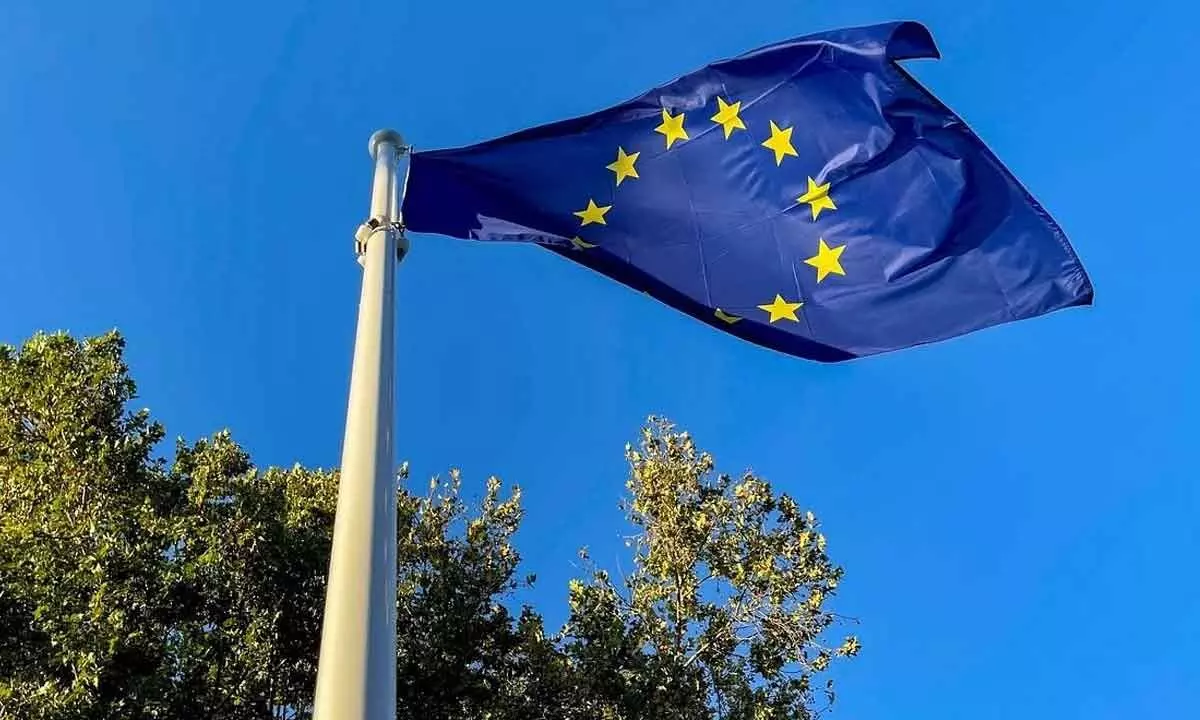EU moving towards paperless customs system
Development assumes significance for domestic exporters as EU accounts for about 17% of India’s total merchandise exports
image for illustrative purpose

New Delhi: Indian exporting firms need to gear themselves up to comply with new EU norms as the European Union is moving towards a paperless customs process from June 3 this year.
The development assumes significance for domestic exporters as the European Union (EU) accounts for about 17 per cent of India's total merchandise exports. In 2022-23, India exported goods worth $75 billion to EU as against the country's total exports of $451 billion in that financial year. The EU has proposed to implement the second phase of its Import Control System (ICS) from June 3 this year. ICSD 1 was applicable to the air mail and express deliveries from March 15, 2021, and then it was extended to air cargo from March last year. The 'ICS2' will now be extended to cover all type of imports using ships, trains, trucks also on June 3, 2024.
First two phases covered 15 per cent imports into the EU, third and final phase cover balance 85 per cent of the imports by value. According to a European Commission release, economic operators carrying goods by sea, inland waterways, road and rail will have to submit a complete Entry Summary Declaration (ENS) dataset to ICS2. The new system will apply to all goods, including physical goods like manufactured products, raw materials, agricultural products, and even live animals.
It will also apply to letters, parcels, and express deliveries. The new system enables the EU to move towards paperless and risk-based import compliance. It eliminates the need for paper declarations for most goods and simplifies the customs clearance process based on risk assessment. Economic think tank Global Trade Research Initiative (GTRI) said, "The Indian exporters, EU-based importers and carriers will now be required to submit data electronically through the ICS2 system, replacing older paper-based declarations."
It added that the new system is streamlining the customs clearance process by eliminating the need for physical paperwork at borders. Paper documents may be required only for a small category of specific types of goods or certain trade lanes. Also, while the EU customs goes digital, it recognises that international trade might still involve paper documents, like bills of lading or commercial invoices, it said. GTRI Co-Founder Ajay Srivastava said that the EU's system will also focus more on checking goods that might be risky, so that safe goods can move through customs faster. The risk assessment for each shipment is based on various factors, including the type of goods, the origin and destination countries, the trader's compliance history, and any intelligence or risk indicators available.
"Indian exporters need to be well-prepared and compliant with the new system that will kick in from June 3, 2024. They need to provide accurate and complete commodity information for the product being shipped, including the Harmonized System (HS) code, detailed descriptions, value, and weight," he said.

